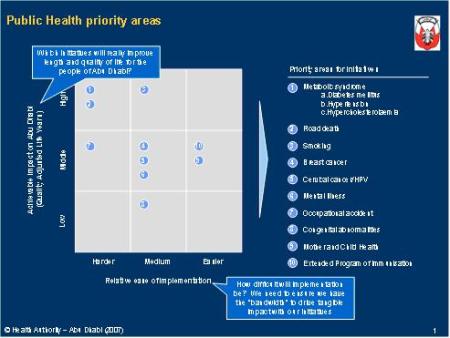Data from the Health Authority – Abu Dhabi (HAAD) shows cancer is the third leading cause of death in the emirate, and cervical cancer is the second leading cause female cancer death making its prevention a top 10 Public Health priority.
This confirms WHO data listing the UAE as intermediate in cervical cancer prevalence, and the continuing WHO recommendation that HPV vaccination is effective in primary prevention. From 2007, HAAD has funded Gardasil within the Extended Programme of Immunisations (EPI) for UAE National and Non-National girls at the age of 17; the vaccine is given by school nurses as part of the school health programme with consent required from both the girls themselves and from their parent or legal guardian.
There has been persistent global concern about the vaccine, with some concerns about safety, although the US Food and Drug Administration and other regulators continue to consider the vaccine effective and safe. Vaccine uptake remains constant at 54% of target girls taking-up the vaccine.
The decision to include Gardasil in Abu Dhabi’s EPI involved substantial stakeholder discussions, including with the Department of Religious Affairs (Al Awqaf), but there have been continuing concerns within the community. Recently the Family Development Foundation has raised concerns regarding the suitability of the vaccine, citing concerns about the potential for the vaccine to encourage sexual activity.
Based on the unequivoval epidemiology of cervical cancer in the emirate, and three years of successful implementation, we believe now is the time to reconfirm the pragmatic decision to include this vaccine in the EPI, with two-layered consent to enable conscientious objection, and simultaneous education about sexual practice.


August 21, 2010 at 1:21 am |
Thank you for this interesting post. I am really interested in the content of the discussion that lead to this vaccine being included. I wonder what advocates needed to say to convince religious/conservatives to include a vaccine for a sexually transmitted disease. I am also curious about the epi of cervical cancer in Abu-Dabi. How does the screening differ from the US? Are women resistant to pelvic exams? Is HPV more prevalent? Is treatment readily accessible?
August 21, 2010 at 5:59 am |
As much as the US has seen a resistance to these vaccines from conservative Christian groups, it is interesting to consider how Gardasil and Cervarix are received in other societies with traditional values. I completed my medical school training in Israel before returning to the states for my MPH and residency. Only Cervarix has been approved for use in Israel and it is not covered by the national insurance basket of services. It is approved for girls and women ages 9 – 26. I do not know why Gardasil has not also been approved. While both vaccines are intended to protect against cervical cancer and high-grade CIN caused by HPV 16 and 18, only the quadrivalent Gardasil is designed to prevent genital warts and low-grade CIN caused by HPV 6 and 11. I wonder if the decision to focus on Cervarix is an attempt to limit the discussion regarding the vaccine to the topic of cancer and minimize the issue of other HPV manifestations. While women might be strongly encouraged to abstain from sexual behavior until marriage in both the Muslim and orthodox Jewish communities in Israel, marriage often occurs earlier than in other communities. The issue of when to vaccinate is important. While high levels of immunity have been demonstrated for both vaccines beyond five years, it remains unclear how long the vaccines remain protective. For this reason, it is reasonable to recommend later vaccination if the onset of sexual activity for an individual is expected to be later. I find it interesting that the UAE recommends vaccination at age 17. Is it expected that women will marry soon after this age? Thanks for an interesting read!
August 14, 2011 at 6:06 pm |
In my opinion, I think it would be a violation of human rights to restrain someone from obtaining what can prevent a fatal disease. Of course, cervical cancer is a public health problem especially if it is one of the top leading causes of mortality. The fear of the potential undesirable social promiscuity may eventually be a concern but isn’t that a part of parental responsibility in inculcating morales and values to their children? Reinforced by education in school? Raising responsible individuals is the role of families and schools. Addressing preventable, premature deaths is the government’s. It is the right of every concerned individual to know what is available to optimize health…it is up to her to decide whether to take advantage of this privilege. I think the HPV vaccine should be offered to everyone at risk (with the supporting benefits explained).